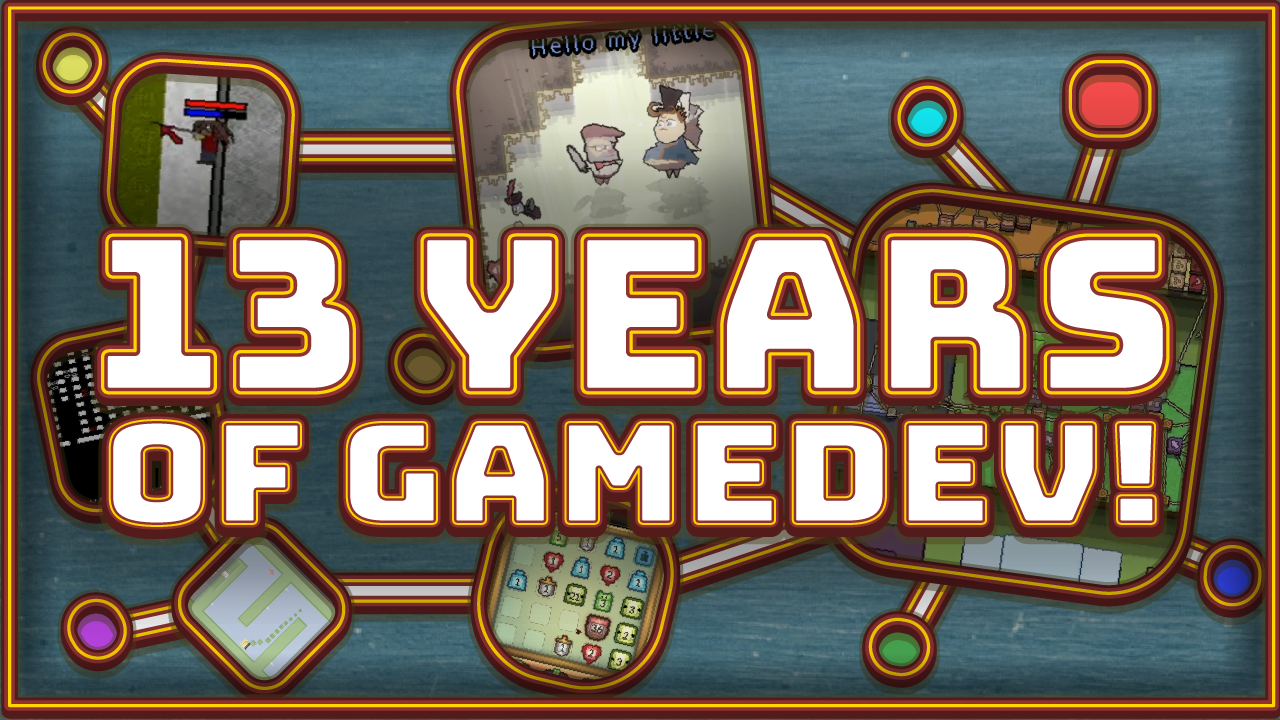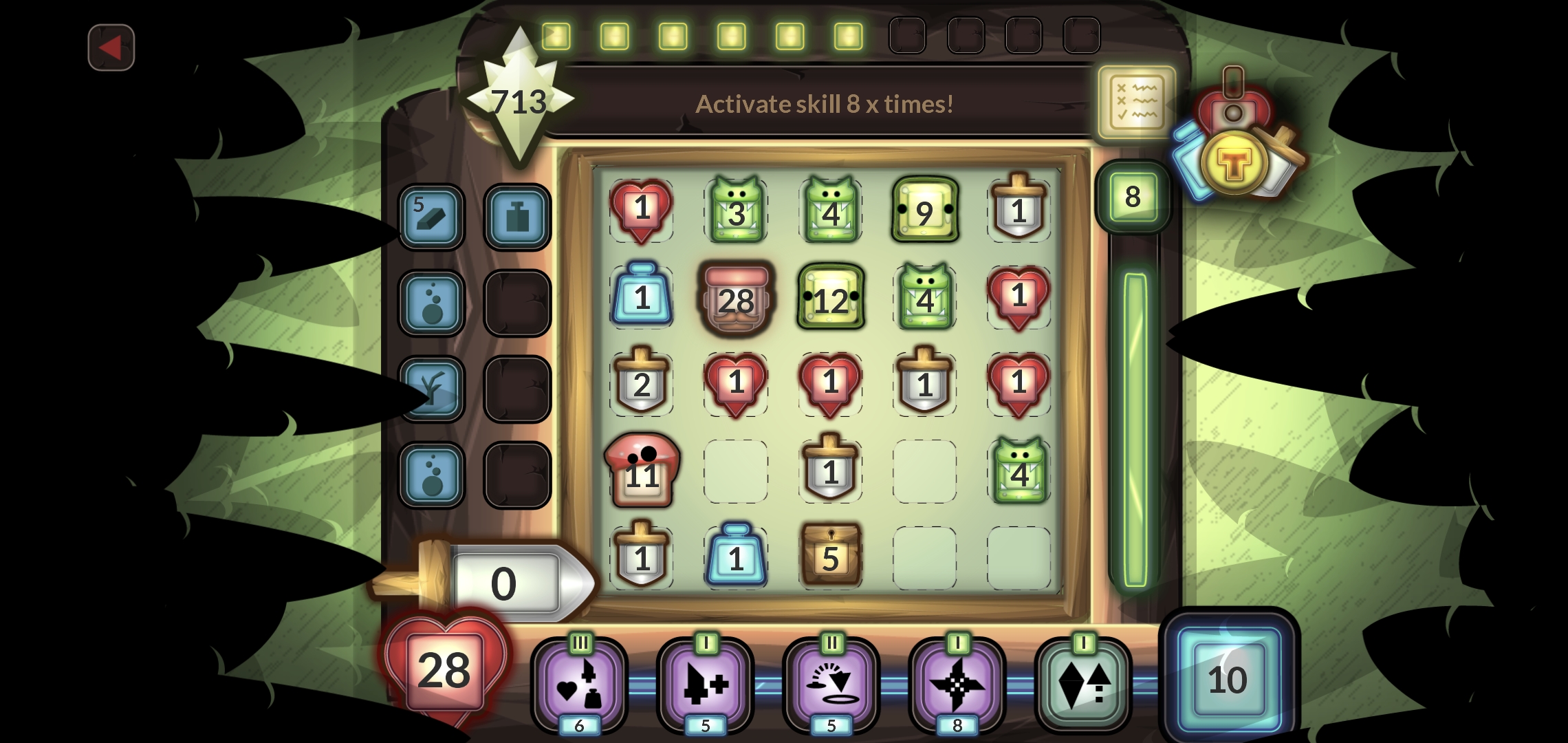libGDX is a Java game development framework that provides a unified API that works across all supported platforms.
The framework provides an environment for rapid prototyping and fast iterations. Instead of deploying to Android/iOS/Javascript after each code change, you can run and debug your game on the desktop, natively. Desktop JVM features like code hotswapping reduce your iteration times considerably.
Libgdx tries not be the "end all, be all" solution. It does not force a specific design on you.
What is this article about?
I would like to share my thoughts with you on the subject of creating indie games solo, primarily focusing on marketing, using the examples of two of my games: Sliding Swords and Node Farm.
About me
I am a programmer and have little experience with marketing, but I started learning about it gradually some time ago. I've come to realize that: marketing is not just about promoting your game; rather, it begins much earlier. This will be evident in the following two examples from my own experience. This might be obvious to most of you, but I had to learn it from my own mistakes. I wrote this article so that you don't have to learn it the hard way.
For many years, I worked on my largest game - TAnima (but that's material for a separate article).
At a certain point, I realized that if I wanted to shift my career more towards solo indie game development and complete this game, I needed to diversify my work (a potential source of development funding) into smaller games. This way, I could solely focus on my main game creation. Just for the context: before TAnima I made ~30 smaller games.
For those interested there is a ~20min video where I talk about almost all of my games made in 13 years: Youtube.com

And here we come to our first example:
Sliding Swords - Postmortem

Steam: Store.steampowered.com
For a long time, I've been keeping a small list of game ideas in my head that I would like to develop someday. One of them involved combining the well-known game from a few years ago - 2048 - with RPG/Roguelite elements in a fantasy world.
Sliding Swords is a game where the player moves all objects on the board at once; objects slide across the board and merge if they are of the same type. Additionally, we control a character of our choice in the same way, attacking enemies, casting spells, completing quests, and discovering new characters, and levels - it's quite a complex concept.
How did it go?
The game has already been released on Steam. Around the time of the release, it had about 600 wishlists (added about 100 more after the release) and earned around $100 net. I worked on it after hours for over half a year (it's difficult to determine exactly how long).
Despite promoting the game on social media, showcasing it at Steam Next Fest, and reaching out to many YouTubers, the interest was minimal. A few smaller YouTubers (and Olexa) recorded videos about it on YouTube (for which I am very grateful!), and that was basically the only aspect that somewhat boosted the "visibility" on the Steam page.
The game was also released on Google Play with ads, but it didn't perform particularly well there either.
What went wrong?
The main problem I encountered during the game's promotion was that it was challenging to explain what the game was about through images and videos. From conversations with people who saw my posts on social media, I learned that it wasn't clear who the game was actually targeted at, leading to a series of misunderstandings.
A significant portion of players thought that Sliding Swords was a relaxing casual puzzle game, and by playing it, they bounced off how complex the mechanics were. On the other hand, players who typically engage in more "hardcore" games avoided the title altogether, thinking it was a casual block-matching game reminiscent of classic free-to-play mobile puzzle games (which don't really have a place on Steam).
Mixing genres can hurt your game if done wrong.
And here is where the difficulties began. The game was practically unmarketable in its current form, and promoting a game is one of the more challenging tasks for an indie developer like me - without the proper backing of human resources and capital. I would have to invest a lot of time and energy to tailor it to a specific target audience (but which one?) with an unknown outcome. I concluded that it wasn't worth it.
I decided to release the game, conclude development, and try a different strategy. Originally, I didn't want to work on Sliding Swords for more than half a year, and development was already dragging on. At least I managed to deliver all the planned content. It's a shame it lacked the additional features from my backlog, but oh well. Sometimes that's how it goes.
About Steam Next Fest
I participated in Steam Next Fest with both Sliding Swords and TAnima. In both cases, I didn't have too many wishlists at the start (around 300-350 WL), and in both cases, the festival doubled the wishlist count. Considering that the festival gains the most attention when ranking high on the Steam lists, I believe we can assume that the final result of acquired wishlists is a function of the initial wishlist count you start with
.I didn't notice a significant difference in terms of the launch timing. In both cases, I tried to choose a time slot that would reasonably cover the time zones of the USA, EU, and East Asia.
In the case of TAnima, I conducted a live broadcast. For Sliding Swords, I switched to prerecorded content (you can find it on my YT channel). It didn't make a difference (but it may make a difference on a title with better marketing).In my opinion, the best approach is simply to broadcast a previously recorded live gameplay with commentary on a loop from the beginning of the festival and keep it that way until the end of Next Fest. A lot of other titles did this.
For TAnima, I streamed a recording from my own hardware, while for Sliding Swords, I used an online service (which had a free trial for a week - convenient for a 1-week festival).
Keep your recording live during the whole Steam Next Fest, some people may come in, go on, and maybe leave a wishlist.
About Demo version
In the case of TAnima, despite conducting earlier alpha tests in a controlled environment, it was only when I watched recordings of influencers playing my game that I noticed many shortcomings I hadn't even thought of.
For Sliding Swords, I made more effort in terms of introducing the game, but it still didn't work out well. Both games were not very accessible in their initial demo versions, which translated into a short gameplay time in statistics and probably, in part, low coverage by influencers.
Players don't have the time or desire to play the same demo again if it was botched the first time.
Throughout the production, I was constantly learning and testing various aspects of marketing. I consider this time very fruitful and valuable. It's great to have such a practical example to experience firsthand how the unknown part of the industry works.
I noticed that in a way, I'm starting to enjoy this. Therefore, I decided to test my thoughts and lessons learned in the next game:
Starting next game: Node Farm
While still working on Sliding Swords, when I could see that it might not succeed, I started designing prototypes as part of a personal competition for the next game I would tackle. The main problem with such prototypes is that it's not easy to gather people who will play them and provide feedback.
And this is where game jams come into play.
What did I do differently?
Game jams are like contests, usually without prizes, where participants create a game within a limited time (e.g., a weekend) based on a given theme. They play games made by other participants and provide feedback.
Practically every week, I took part in some game jam—sometimes lasting a week, sometimes a weekend, and even a more daring 3-hour jam. I was able to test a large portion of ideas from my mental list and choose one that resonated the most with players (not just developers—random people from itch.io also joined).
You can see my itchio gamejam games here: Byern.itch.io (along with the Node Farm first prototype - sadly it works only on Chrome and Safari now).
Something more about the new gameNode Farm is a cozy automated farm simulator where players build their own farm using nodes representing various agriculture-related objects. They earn money, upgrade their small vegetable factory, purchase additional islands for more space, unlock new types of nodes, and, after winning the game, unlock new features for the next playthrough.
Beforehand, I investigated which game genres have the best visibility, both on YouTube and other social media. Articles on the website Howtomarketagame.com were particularly helpful for me. Additionally, I worked on ensuring that the game was easily understandable at a glance through videos or images, with a simple accompanying description.
I didn't want to repeat the same mistake as with Sliding Swords.
Result for now (Node Farm)

Steam: Store.steampowered.com
I created the Steam page for Node Farm in mid-December, and:
after just two days and a few social media posts, it surpassed Sliding Swords in wishlists.
Sharing any material about Node Farm is much easier and more enjoyable because I don't have to struggle with explaining what the game is about, and a significant portion of players (including myself) enjoy this genre. The gimmicks I had to implement in the Sliding Swords trailer were a bit of a disaster. Here, it was enough to showcase gameplay and a few animated captions.
I receive a lot of positive feedback, warm words, beta test sign-ups, suggestions, and support—for which I am incredibly grateful. Thanks to this, working on the game is much more enjoyable.
As of today, when I'm publishing this article, Node Farm's wishlists have surpassed 2400—significantly more than my two previous games (Sliding Swords and TAnima) combined. It may not be a huge number considering industry discussions mentioned at least 7k wishlists (within a reasonable time frame) (a few years ago) to trigger Steam's promotion algorithms during events or in the Steam store.
For me, it's still a personal success, especially since I'm creating a game that I enjoy, and it's not just following the current Steam trends.
Conclusions
The game is not released yet, and much can happen, but even now, I believe there is at least one lesson to be drawn:
Marketing begins at the stage of the concept, market analysis, prototype design, and testing the idea.
Before diving headfirst into full-fledged work on a new game, I created and explored 5 other prototypes. In the second half of this year, I plan to release the game - we'll see if it was worth it!
What next?
As of today, my goal is to complete the beta version by the end of March, test it during beta testing, polish it, and gain a sufficient number of wishlists so that during the June 2024 Steam Next Fest (to which I've submitted the game), Steam's algorithms will promote it to a higher position on the list. This will enable me to reach as many players as possible, finish the game, support it, and continue working as an indie game developer.
I have a lot of fun exploring new possibilities, learning new things, and making another self-publishing attempt. I wish you all the same!
I hope you enjoyed my article and it will help you somehow on your gamedev journey! Feel free to leave comments!
Wish me luck!

Beta testers for Aroraboll Android
ArorabollWe are looking for people wanting to beta-test our action game, Aroraboll, controlled with the gyro for Android devices.

Nominated for Best Mobile Game 2023 SGA
ArorabollAroraboll was nominated as a finalist in the Swedish Game Awards 2023.

PRESS RELEASE: Retro Commander -- Post-Apocalyptic RTS Game
Retro Commander 1 commentNoble Master Games releases Retro Commander, a post-apocalyptic, futuristic real-time strategy game (RTS), after 6+ years of development.

AstraX
Futuristic SimExplore and research an (almost) infinite galaxy: Find stellar phenomena, ranging from asteroid belts, moons, realistic star types and unique planetary...

Team Battle
Third Person ShooterJoin the Resistance! The machines have seized control and seek to subjugate humanity. Our world is besieged by advanced technology, and all previous attempts...

Node Farm
Realistic SimAutomated Node-based Farm Simulator Do you like farming simulators? Automation? Strategy? Roguelites? Cozy vibes? You can find it all here!Simple and...

Trupki
PuzzleMost simple puzzle game ever possible. Sliding tiles by rows or columns so that the final shape, made of tile elements, appears! Game guides you step...

Aroraboll
ArcadeDodge the evil blobs and pick up powerups and scoring blobs at a frantic pace to keep the score-chaining going. Score high to unlock more levels or top...

Alexey's Winter: Night Adventure
Point and ClickA classic Point-and-Click adventure game: the action takes place on a winter night in Ukraine in the nineties. You play as a young man who is faced with...

The Vision Of The Ant
Role PlayingThe Vision Of The Ant is a monster catching, dungeon crawling RPG. Explore dungeons, capture unique monsters, and engage in strategic turn-based battles...

Retro Commander
Real Time StrategyRetro Commander is a post-apocalyptic real-time strategy wargame (RTS). Take command and fight it out in a world where a cataclysmic timeline has transpired...

Mountaincore
Real Time StrategySettle an untamed wilderness with the might of Dwarven engineering and thoughtful planning! Design and build your colony towards fame and fortune in a...
Drevepsina
Real Time StrategyDrevepsina is a mobile RTS with immersive game mechanics. The basic idea is simple: build a base, amass an army, and attack the enemy. Thanks to good...

















I just created a game called Chomp! using LibGdx. I found it a great library and I liked that it was a programmers platform since I am a Java programmer.
My game is now on the Google Play Store. It is about a crocodile that catches food. You control the crocodile with the accelerator.
Wally the Crocodile catches food from all directions and angles.
Three ways to play.
Play.google.com
Facebook page is Facebook.com
Why the developer is TOME studios and the license is Commercial?
It's being developed by the libgdx guys and the license should be Apache2.
This comment is currently awaiting admin approval, join now to view.